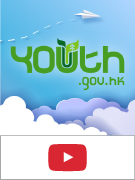#employment
Search Result: 7
#STUDYABOARD: THREE PATHWAYS TO FURTHER STUDIES IN THE MAINLAND
While “all roads lead to Rome”, there are also 3 different ways to continue your study in the Mainland. They come with different admission requirements and schedules. Get set and choose one that best suits you. 1. National Education Exams Authority, People's Republic of China Joint Entrance Exam for Universities in PRC Students can enroll for around 300 higher education institutions in Mainland China through the National Education Exams Authority, People's Republic of China Joint Entrance Exam For Universities in PRC. Enrollment for the Joint Entrance Exam Year 2020 was opened from 1st March to 15th March, 2022. 2. Scheme for Admission of Hong Kong Students to Mainland Higher Education Institutions In Academic Year 2022, a total of 129 Mainland higher education institutions participated in the Scheme for Admission of Hong Kong Students to Mainland Higher Education Institutions. 3. Direct Recruitment of Hong Kong Students to Mainland Higher Education Institutions Some higher education institutions are permitted by the Ministry of Education to set up at their own discretion admission requirements or exams for recruiting students in Hong Kong. In Academic Year 2022, Mainland higher education institutions which provide direct admission in Hong Kong include: Peking University Tsinghua University Fudan University Jinan University Huaqiao University Shenzhen University For more details about the policies and methods of admission of Mainland higher education institutions, please visit the Mainland Higher Education Institutions Admission Information Website for Students from Hong Kong, Macau and Taiwan. Non-Chinese Hong Kong Students: According to the policy of the Ministry of Education of the People’s Republic of China, higher education institutions in Mainland may refer to the relevant requirements of the Scheme for Admission of Hong Kong Students in the admission of non-Chinese students who have obtained permanent resident status and participated in the HKDSE Exam. Admitted non-Chinese Hong Kong students will be subjected to tuition fees and management policy applicable to international students. For further details, please refer to the international students department of individual institutions or visit the China Education Exchange (Hong Kong) Centre.
Q: How to register the Job Alert? A: After successful Registration at the Interatcive Emplotment Service (iES) website, you can register for Job Alert service under "my home" to receive regular email notice which contains the most updated job vacancy information matching your job search criteria. Apart from that, you may use the employment services offered by the Labour Department. These include: - Save your job search criteria to receive a job list under "my home" which contains vacancies matching your job search criteria every time when you login iES website; - If you have chosen to receive information on employment services/ recruitment activities of the Labour Department upon registration, the system will notify you of such activities through e-mail or SMS. - Services of the Telephone Employment Service Centre [Telephone Hotline : 29690888]; - Employment services of the job centres throughout the territory;
(Summer Job) Interview Skills, Application Letter and Résumé
If you are invited to attend an interview, it means that you have preliminarily met the requirements of the company and the post. You should make good use of the chance, get well prepared and demonstrate your strengths as far as possible to convince the interviewer that you are the most suitable candidate.Preparation for the Interview - Gather information about the post and the organisation, such as job nature and requirements, development and outlook of the trade, etc.; - Practise relevant skills related to the post you apply for, e.g. Chinese and English typing, computer software application, etc; - Prepare concrete answers to questions often asked during interviews and rehearse the interview beforehand so that you will become more confident and less likely to get nervous in the interview; - Pay attention to current affairs and hot topics; - Prepare some questions about the post and the recruiting organisation and raise them to the interviewers at the end of the interview; - Go to bed early the night before the interview. Sufficient rest will keep you in high spirits, enhance your confidence and ability to respond to changes; - Being late for a job interview is undesirable. It upsets you and leaves a poor impression on the interviewer. Plan the route and find out the traffic condition of the place of interview beforehand. Arrive preferably 15 minutes before the scheduled time to allow yourself time to settle down and get ready for the interview. To attend an interview, you should bring Identity card; Ball pens; Résumé; Academic certificates, both original and copies; Work history proof, both original and copies (e.g. reference letter, employment contracts, resignation letter, etc.); Passport photos; Employer's address and telephone number; Mobile phone. (*Get ready important documents like proof of academic qualifications and work history and organise them systematically. To give the interviewer a good impression, make sure that you can produce the documents in good order for inspection; Don't bring excessive personal belongings or things which are not related to the interview.)Appearance in the interviewBe neat, clean and tidy, from head to toe. Behave naturally and keep poised; Don't dress too showily; Avoid heavy make-up and wearing too many accessories. When you arrive… - Remember to turn off your mobile phone; - Tell the staff politely the purpose of your visit and wait patiently; - Refer to the résumé when you are asked to complete a job application form. Complete it carefully and neatly; - Don't walk around, touch or use any items of staff in a carefree manner; - Don't appear to be impatient and tired while waiting. When entering the interview room… - Knock the door before you go in. Smile and greet the interviewers politely; - Sit down properly when invited or prompted by the interviewer. During the interview… - Keep calm and smiling. Don't be too reserved; - Be sincere and polite, but not too modest or humble; - Speak with a friendly manner, at a proper speed and volume. The pronunciation should be clear and the tone be affirmative; - Don't cross your arms in front of the chest, lest you would be mistaken as an unfriendly person; - Keep appropriate eye contact with interviewers. Maintain eye contact with the interviewers to show your confidence and respect. Don't stare at interviewers. It would be regarded as impolite and would make interviewers feel stressful; - Avoid small gestures such as playing with your fingers, rubbing hands or patting your hair. This will give the interviewer an impression that you are immature, impatient or lack of confidence; - Listen carefully to the interviewers' questions; answer precisely and clearly. Don't simply say "yes" or "no". - You should elaborate the key points clearly; - Nod where appropriate when listening to the interviewers to show your interest in the topic and agreement with the interviewers; - At the end of the interview, you may ask one or two questions about job duties, training and promotion - prospects to show your interest in the applied post or joining the company; - Thank the interviewers and say goodbye before you leave. >>Click here to read the sample of Application letter & CV template (Please visit Labour Department website for more about Summer Jobs Employment)
Summer Job Searching - 8 Useful Tips You Should Know
Before searching summer jobs on the internet, please stay alert and be cautious in job searching to avoid falling into employment traps. Here are some useful tips:1. Stay alert when applying for a job from anonymous recruitment advertisements and verify the employer's identity; 2. Beware of recruitment advertisements which offer attractive remuneration but require no qualification or experience; 3. Don't yield to persuasion if you are asked to take up a job that is different from the job advertisement, especially when you lack the requisite job knowledge or skills; 4. Don't be rash to pay fees of any kind, e.g. training fees or administrative charges, etc.; 5. Generally speaking, companies will not ask job seekers to pay for products or training classes in return for a job offer; 6. Never be rash to provide important personal information and documents such as identity card, the PINs of credit cards or ATM cards to others. Don't let others use your bank account; 7. Understand the job nature well. Don't take up jobs which involve unlawful activities or sex deals; 8. Be cautious when signing contracts and documents. Make sure you fully understand the contract terms and the provisions before signing. If in doubt, do not sign on it. >>Click here to proceed to search for Summber Job Vacancies (Please visit Labour Department website for more about Summer Jobs Employment)
Youth Employment and Training Programme (YETP) “Relevant working experience is required”. This is a common phrase in the career post. But don’t be put off. For young school leavers aged 15 to 24 with educational attainment at sub-degree or below level, you can enhance your potential by joining the Youth Employment and Training Programme (YETP). The Programme provides not only pre-employment training and workplace attachment opportunities, but also opportunities of employment, on-the-job support services and allowances for off-the-job vocational training courses. Vocational Training Council (VTC) There are also various vocational education and training programmes of recognised qualifications offered by the Pro-Act Training and Development Centres and the Youth College of the Vocational Training Council (VTC). Employee Retraining Board For those who left school some time ago, there are many ways to seek training or rejoin the workforce. Employee Retraining Board's “Youth Training Programme” provides funding for non-engaged youth aged 15 to 24 with education attainment at secondary education level or below to take up vocational training, which helps them transform interests into career paths. The programme consists of “Teen's Programme”, “Modern Apprenticeship Scheme” and “Ethnic Minority Programme”. The VTC also provides training programmes for those with disabilities who want to learn employable skills.
Relevant employees' protection ordinance In Hong Kong, there are a number of ordinances protecting employees’ rights and benefits. Know more to better safeguard your interests. The Employment Ordinance The Employment Ordinance is the major piece of legislation protecting employees’ rights and benefits which covers payment of wages, rest days, sickness allowance, annual leave, termination payment etc. The “Concise Guide to the Employment Ordinance” gives a quick guide to the various provisions. Proper employment records Keeping proper wages and employment records is essential to protect your interests. What types of record are needed? Click the checklist suggested by the Labour Department. The Employees’ Compensation Ordinance If you want to claim employees’ compensation for work injuries or prescribed occupational diseases, please refer to the Concise Guide to the Employees’ Compensation Ordinance and other related publications. Occupational Safety Health No matter whether you are working in an industrial setting or in an office, you have to be aware of the potential hazards in your working environment. To test how much you know about workplace safety and health, you could play the on-line Occupational Safety and Health e-Quiz [Chinese version only] , or join training programmes for youth to learn more about occupational safety for different jobs. Workplace safety & health To learn more about workplace safety & health for youth, please click here [Chinese version only].
The meaning of work Work, apart from making a living, can also give us a sense of satisfaction and accomplishment. Let’s start with the career ABC - the meaning of work – to understand what we can expect to gain in work as we begin our careers. Support services on employment and self-employment If you decide to join the workforce, you may be puzzled or come across certain dilemmas. You can visit the "Youth Employment Start" for more personal advisory and support services on employment and self-employment. Available services include Career Assessment, Mock Interview Workshop, as well as a free business workstation and a design corner for self-employed youth. You can now try the on-line simplified version of the Career Assessment, as well as register on-line as a preliminary member, apply for activities and make reservation on part of the services of Youth Employment Start. Career guidance Next up: should I work or further study? Life Planning Information Website of the Education Bureau provides detailed information about both options and will help you make the right decision.












